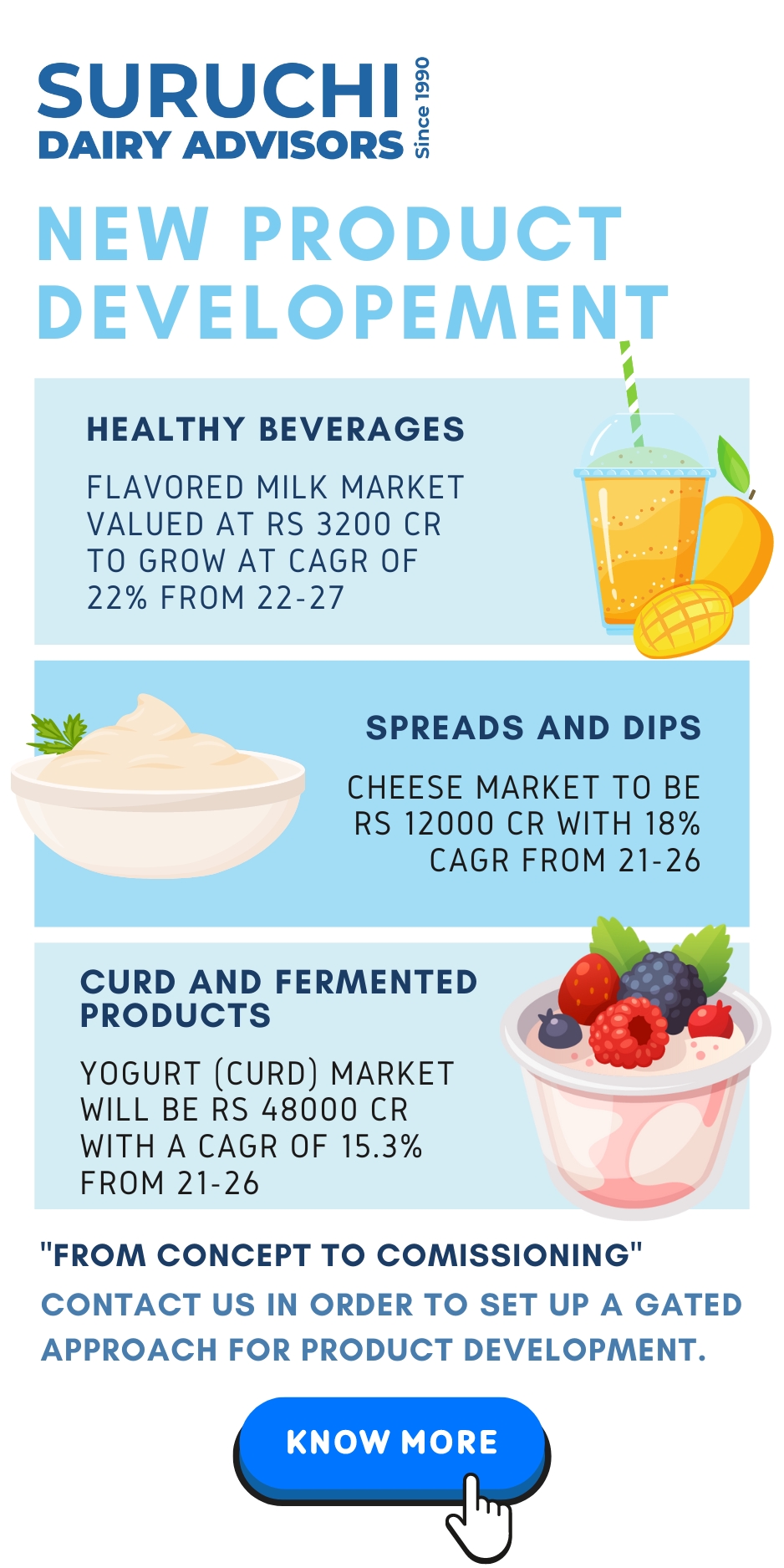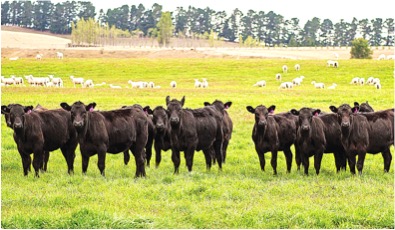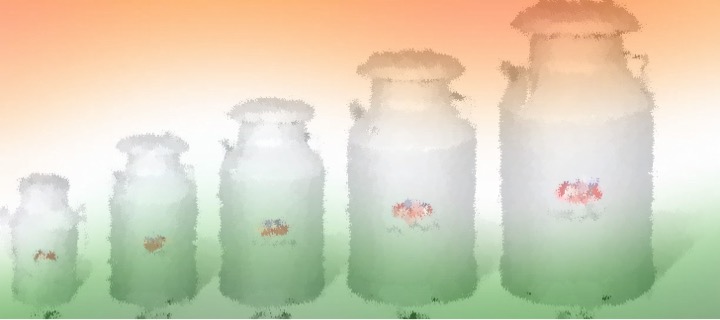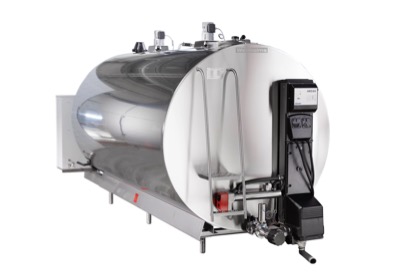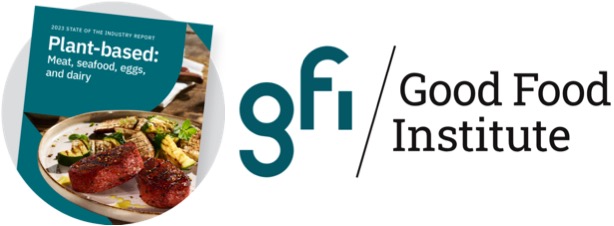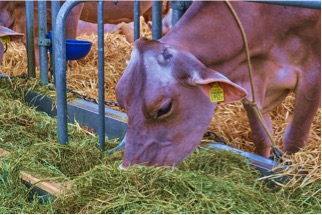Veganuary. Potato milk. Earth-positive clothing. Flexitarianism. The plant-based revolution has spun a dictionary’s worth of new terminologies, touching every sphere of life in the process. When the pandemic inflicted a pronounced pause in people’s lives, they began taking stock of their own health and that of their planet, on a priority basis. Data collected by the Innova Market Insights platform concludes that caring for our ‘Shared Planet’ would be the top trend for 2022—even above caring for our own health. The report notes that trust and transparency from brands is the biggest demand from an increasingly educated, forward-thinking and interconnected consumer base. It’s no surprise that this enlightened planet-first consumer is pivoting the economy on a plant-based axis. Here’s everything you need to know to keep up with the changes.
“Our company’s current focus is jackfruit, but we will be expanding our offerings to include multiple food products, sources and categories for plant-based meat alternatives in the near future, as we see a high demand for meat-based alternatives around the country” – Sairaj Dhond Founder and CEO, WAKAO Foods, Goa
Treat with It
Humans have relied on the medicinal properties of herbs to cure and provide relief since well before the advent of modern medicine. Hemp, in particular, has been hailed as a wondrous natural medicine for centuries, with numerous Ayurvedic treatments relying on its use. Jumping on this trend, many brands manufacturing hemp-based therapeutic and wellness products have arisen around the country. The global hemp industry was estimated at $4.71 billion in 2019, according to the Industrial Hemp Market Size, Share And Trends Analysis report published in 2020 by Grand View Research, and India is following the trend. Though hemp can be used in the production of all manner of products—from T-shirts to soaps, skincare to cooking oil—its most popular avatar is for wellness products used for the treatment of gut and skin ailments. Considered one of the five sacred plants of India, hemp, and particularly its seed oil, contains an abundance of essential fatty acids that can alleviate dry skin, eczema, and other skin irritations. SOS Organics based in Almora in Uttarakhand makes hemp and stinging nettle-based creams to cure the auto-immune disorder called psoriasis. Jaipur-based Hempstrol manufactures pain-management balms and capsules to alleviate menstrual pain. Satliva from Bengaluru makes a host of creams and soaps aimed to rejuvenate and heal skin and hair problems; and The Trost from Delhi makes unique tobacco-free, hemp-based cigarettes to cure problems like Asthma, Dyspnea and other auto-immune disorders.
“We are constantly working to make people understand that CBD is a compound found both in a marijuana plant and in an industrial hemp plant. The government of India allows legal trade of only CBD derived from industrial hemp plants with less than 0.3 percent THC, and has been very supportive of the CBD industry, motivating start-up founders to take the health sector of India at par with global standards ” – Deepika Sharma Co-founder and Managing Director,Hempstrol, Jaipur
Wear It
Advocates of plant-based lifestyles don’t limit their green habits to what they consume. This is most evident from the growing popularity of the earth-positive clothing movement. Described as being Climate Neutral clothing, which is organic, ethically made and manufactured using sustainable energy generated from wind and solar power, this type of clothing aims to take immediate action to combat climate change. Aware of this change in consumer preferences, a number of brands are turning the sustainable route. Bengaluru-based Saltpetre ensures sustainability by keeping its designs devoid of adornments that don’t serve a functional purpose. They use only premium eco-friendly raw materials, produce clothes in small batches to curtail wastage, and use 100 percent biodegradable packaging which can later be made into window planters. Pala Designs from Delhi works extensively with Kala cotton, indigenous to Kutch in Gujarat. Made from the core of the cotton plant, this raw material is naturally resistant to diseases and pests, and fairly easy to grow. It is woven by specially trained artisan families. The cost of producing this cotton is higher but clients are increasingly picking it over other offerings for its positive environmental impact, its propensity to soften with each wash and its longer shelf life.
“Customers are becoming more mindful of the quantity and quality of their purchases. They seek information like what is the garment made of, preferring to choose natural fabrics over synthetic. The eco-ethical impact of their clothing purchase has started steering their buying decisions” – Pooja Monga Founder and CEO, Saltpetre, Bengaluru
Get Vaxxed with It
Herbal or plant-based medications to treat ailments have been used since time immemorial. But did you know about the brand spanking new plant-based vaccine against the Covid-19 virus? Canada-based Medicago has been in the business of developing exclusive plant-based vaccines and therapeutics since the 1990s. In December 2021, their plant-based Covid-19 vaccine—the first of its kind—was tested against the Delta variant and proved 75.3 percent efficacious. The vaccine’s overall efficacy rate against all variants of the coronavirus was 71 percent, except Omicron, which was not in circulation when the study was underway. Their methods may sound experimental but are based on their proprietary Proficia® technology, which synthesises the virus’s code so that its genetic instructions can be ‘read’ by plants. The technology uses Nicotiana benthamiana plants as the experimental host in plant virology since a large number of viruses successfully infect this host. The natural cell process of Nicotiana benthamiana is temporarily exploited to produce virus-like particles (VLPs), on the basis of which the vaccine is developed—much quicker than their regular counterparts. Medicago’s vaccine is yet to be approved and experts have little evidence to base their opinions on, but 2022 will certainly reveal more.
“I don’t know anything at all about plant-based vaccines, but applaud the exploration of potential new approaches that may end up having great merit” – Dr Tobi Saidel Epidemiologist and Director, Partnership for Epidemic Analysis, Delhi
“We are always looking at ways to incorporate locally sourced materials. We use lots of sustainable products in our projects like terrazzo/cement flooring, sustainable wood products that are sourced from renewable forests or products like bamboo, exposed bricks and terracotta products. We also often use reclaimed wood for interiors and furniture” – Anika Mittal Dhawan Founder Director, Mold Design Studio, Delhi
Work Out with It
Health nuts keen on muscle gain and down on animal proteins are increasingly turning to plant-based protein alternatives. These green powders and drink supplements are more affordable when compared to traditional whey protein, along with being more ethical, kinder on the planet and healthier. Data published in meticulousresearch.com shows that the plant-based protein supplements market is expected to reach $9.57 billion by 2027, at a CAGR of 7.8 percent. Mumbai is a hotspot for this particular trend, having spawned multiple successful brands in the past few years. ‘Green Protein’, best known for its Berry Blast flavour, uses 100 percent Pea Protein Isolate, which is processed in a way that the protein molecules have little or no aftertaste, and are easy to digest. Smoothie Republic’s mission is to challenge the notion that vegan food can’t be tasty. They do this by infusing creativity in the look of the product and relying on a variety of natural flavours to add taste. OZiva has a large selection to choose from—products aimed at improving skin, hair, and building immunity in adults and kids. Their most popular offerings include Organic Plant Protein made with Pea Protein Isolate, Organic Brown Rice Protein and Organic Quinoa, plant-based Collagen Builders for radiant skin and plant-based Biotin for stronger hair. These products are 100 percent clean and completely natural making them perfect for long-term consumption.
“More consumers are looking for holistic wellness solutions that can provide nourishment inside and out. We have seen an increase in the adoption of clean nutrition to manage stress and anxiety levels. Consumers are adding Ayurvedic ingredients in their daily diets to improve immunity, for better
gut health and a host of other health benefits” – Aarti Gill Co-founder, OZiva, Mumbai
Be Influenced by It
To qualify as a trend in this day and age, it must be endorsed and promoted ceaselessly by influencers. And the same is true of everything plant-based. Aakash Ranison, 26, could well be the face of the Indian sustainability movement. With 43k followers on Insta and the seemingly dream job of travelling the world to educate others on sustainable travel, this vegan Gen-Z influencer believes 2022 will see a further surge in the demand for vegan alternatives in hotels, cafes, flights, proteins, and medicines. Shefali Batra from Delhi has over 20k followers on Instagram for her plant-based cooking content, but her focus is not solely on influencing. As a holistic health and wellness coach, she specialises in conducting plant-based food workshops. She believes it is not enough to become vegan, it is more important to consume the right plant-based food, and avoid unhealthy choices being marketed as vegan. Purvi Shah from Pune is a vegan food stylist and photographer, with nearly 20k followers on the gram. Apart from helping food and beverage brands showcase their products with the right storyline and visuals, she works with selective plant-based brands to promote their products through visual storytelling on social media.
“Two industries will see a huge shift in 2022—food and fashion. We’ll see several new brands entering the Indian market with alternative/plant-based food options and new fashion brands replacing animal fur and skin with vegan/cruelty-free/plant-based alternatives. This goes for social media trends too” – Purvi Shah Food Stylist and Photographer, advocate of sustainable living, Pune
Drink It
Plant-based milks such as soy milk, almond milk and oat milk have made promising in-roads into Indian consumers’ minds. A report by Good Food India and Ipsos estimated the value of the plant-based milk market at $21 million in 2018, and this number is projected to grow at a CAGR of 20.7 percent to reach $63.9 million by 2024. Whether for eco-friendly reasons, dietary concerns or simply following a trend, plant-based dairy replacements are here to stay, with the largest consumer segment falling in the age category of 25 to 34. Behemoths like ITC and Amul are set to venture into this space with their own plant-based milk versions, but the growth has been driven thus far by smaller, homegrown companies. Chennai-based Only Earth makes oat and coconut milk variants, and is available at over 1,000 stores in 12 cities across India and online. They also supply to outlets like Starbucks, Subko Coffee, Oberoi Hotels and more. Other well-known names include Goodmylk, Raw Pressery, Sain and Vvegano. More experimental dairy alternatives such as millet and ragi milks are also available in a variety of alluring flavours. The newest and trendiest entrant on the block, however, is potato milk. The recent Food & Drink Report published by the UK grocery store chain Waitrose highlights the qualities of potato milk as being dairy-, fat-, and cholesterol-free. The calcium found in this drink is said to be equivalent to cow milk and the minerals, and vitamins are more than other vegan milk varieties.
“We offer consumers the choice of healthy and clean alternatives that have a positive impact on theirs and the planet’s health. Oat milk is still not easily available in India, which gives us an edge over other brands. It is a great option to use for smoothies, desserts, or cold coffees etc” – Kunal Mutha, Founder, Only Earth, Chennai
Apply It
India has ancient wisdom in the field of plant-based skincare—it’s called Ayurveda. Following the surge in demand for Ayurvedic products among millennials in metros and Tier II and III cities of India, a number of hip, savvy brands are applying age-old principles to modern skincare needs rather successfully. Increasingly, active skincare ingredients are being extracted from plants as opposed to animal or petroleum-based sources, as the clean and vegan beauty movement takes off. Data from Market Research Future reveals that clean beauty and cruelty-free cosmetics are set to increase in demand by 6.1 percent between 2017 and 2023 in India. Delhi-based The Switch Fix is known for its clean ingredients that target a host of problems. Their Açai of Relief Shampoo Bar is good for the planet and claims to treat hair fall by tackling the effects of pollution on the scalp. Hyderabad-based Vedix relies on artificial intelligence to customise Ayurvedic plant-based products for every customer as per six broad categories based on their dosha profile, and then further divided into issue-specific sub-categories. Mumbai’s Secret Alchemist makes products that use a holistic approach to meet emerging health challenges, by relying on clinical aromatherapy. They are most popular for their plant-based aromatherapy product called Dream, which is a sleep-inducing roll-on.
“Extracts from plants comprise a whole spectrum of active ingredients, unlike a single chemical. Together these active ingredients accentuate each other’s physiological roles, making them very
effective and available for the body to use. For example, Amla is known to exert high antioxidant activity due to its Vitamin C content. Synthetic Vitamin C can never be better than raw amla extract. Nature just does it better” – Dr Zeel Gandhi Formulator, Vedix, Hyderabad

